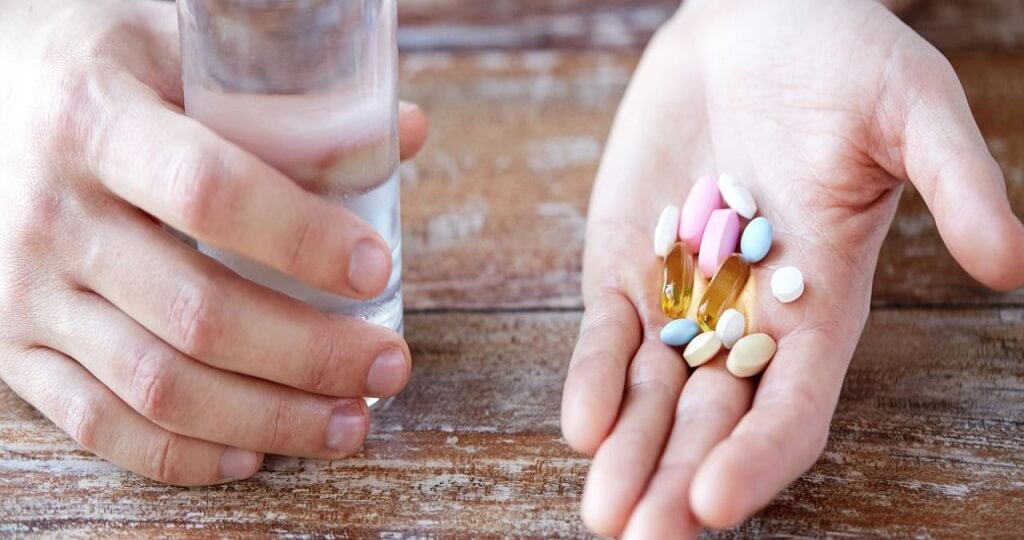LifeSurance.info – Taking medication with food is usually intended to overcome the bitter taste of the medication itself. However, certain foods can interfere with the effectiveness of the medication we are taking. So, what foods should be avoided when taking medication? Find out more below!
Foods to Avoid When Taking Medication
Drug interactions with food are reactions that occur when certain foods you eat affect the performance of a drug, including the drug becoming ineffective, not on target, causing more severe side effects and other adverse effects.
The following are certain foods that may interact with drugs, including:
1. Foods and Drinks Containing Calcium
If you are taking antibiotics, such as ampicillin, amoxicillin, chloramphenicol, tetracycline and fluoroquinolone antibiotics (example: ciprofloxacin) you should not drink milk.
If you still want to drink milk, wait two hours after or before taking the medicine. Milk and its processed products as well as supplements; zinc, magnesium, iron, can inhibit the absorption of antibiotics.
Antibiotics when bound to these substances can form substances that are insoluble and cannot be absorbed by the body. As a result, the medicine becomes ineffective and healing takes a long time.
Actually, not all medicines are dangerous if taken together with milk. There are also several types of medicines such as non-steroidal anti-inflammatory drugs such as acetosal and ibuprofen that are recommended to be taken with milk or at mealtimes. Although it reduces the effect of the medicine, its effect can protect against stomach irritation, and this is considered more beneficial.
2. Oranges
Grapefruit or citrus fruits are considered to interfere with the metabolism of certain medicines in the body. This fruit is known to increase the absorption of drugs into the bloodstream, increasing the concentration of the drug and increasing the risk of liver and muscle damage. However, you may want to avoid grapes if you are taking medications for high blood pressure, high cholesterol, thyroid disease, cough, or heartburn.
3. Food Sources of Vitamin K
Doctors and pharmacists should advise patients taking warfarin to maintain a consistent intake of vitamin K and avoid including kale, spinach, and other leafy greens in their diet.
Although vitamin K is essential for the production of clotting factors that help prevent bleeding, anticoagulants like warfarin work by inhibiting vitamin K. Therefore, increasing your intake of these nutrients can inhibit the effects of anticoagulants and prevent the drug from working.
4. Dairy Products
Dairy products, such as milk, yogurt, and cheese, can alter the effectiveness of antibiotics. Milk is a rich source of calcium, which can interfere with some antibiotics and iron supplements, preventing their absorption and causing less active circulation in the bloodstream.
5. Foods High in Tyramine
Monoamine oxidase inhibitors (MAOIs) are medications that treat depression and symptoms of Parkinson’s disease, and other medications can interfere with the breakdown of tyramine, an amino acid found in some foods.
High levels of tyramine in the bloodstream can also cause high blood pressure. Common foods high in tyramine include chocolate, processed meats, aged or mature cheeses, and soy products.
6. Licorice
Licorice may seem like a harmless snack when taken with certain medications, but if you are taking Lanoxin (digoxin) for congestive heart failure and irregular heart rhythms, some forms of licorice may increase your risk of Lanoxin toxicity. Licorice may also reduce the effects of blood pressure medications or diuretics (water pills).
7. Alcohol
It is best not to take medication with alcohol. This can potentially cause dangerous interaction effects, especially if taken close together.
Taking medication with alcohol at the same time can cause internal bleeding, heart problems, and difficulty breathing.
These are the types of foods that you should avoid if you are taking certain medications. This is to avoid the effects of drug interactions with food. Before taking medication, it is a good idea to consult a doctor about foods and drinks that you should avoid.
